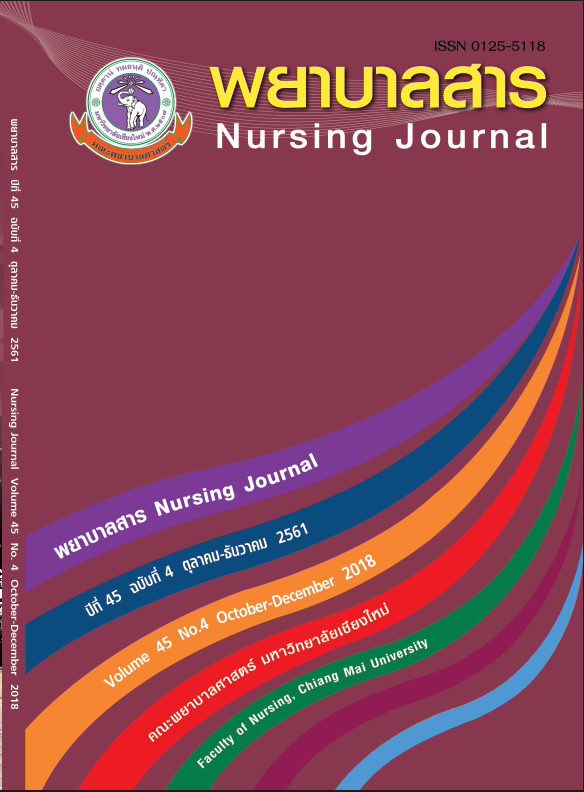Intensive Care Experience Among Intensive Care Unit Survivors
Keywords:
Intensive care unitAbstract
Critically ill patients need advanced support to remain alive and prevent serious complications. However, patients may experience either pleasant or unpleasant memories during their stay in ICU. Unpleasant experiences can affect patients or lead to later negative consequences. Critical care nurses have a pivotal role in identifying traumatic experiences in order to improve care. This study aims to explore the intensive care experiences among ICU survivors. This study was conducted in the general wards of three selected hospitals in Malaysia. One hundred and forty-two (142) participants agreed to take part in this study and to answer the Intensive Care Experience Questionnaire (ICEQ) which included additional questions that covered four domains: awareness of surroundings, frightening experiences, recall of experiences, and satisfaction with care.
The results of the study were as follows:
Half of the samples reported a high awareness of their surroundings. The less aware group reported not being aware of people, place and time. About 70% (67.6%) of the samples reported high levels of frightening experiences. Pain experienced by the participants came from medical procedures or by the disease process. Only 17.6% of the samples reported being able to recall precisely what happened in the ICU. Participants recalled seeing scary things but having enough sleep in the ICU. The results showed that 43.0% reported being highly satisfied with their care, and claimed that the staff was kind and delivered the best care to patients. This result indicates that critically ill patients, especially in the ICU, need strong support physically and psychologically in order to minimize unpleasant experiences and, later, negative consequences by providing a conducive environment and care with sympathetic concern.
References
Brislin, R.W., Lonner, W.J., & Thorndike, R.M. (1973). Psychology. Canada: John Wiley & Sons.
Demir, Y., Korhan, E.A., Eser, I., & Khorshid, L. (2013). Factors affecting experiences of intensive care patients in Turkey: Patient outcomes in critical care setting. Journal of Pakistan Medical Association, 63 (7), 821-825. Retrieved from www.jpma.org.pk
Fredriksen, S.T.D. & Ringsberg, K.C. (2007). Living the situation stress experience among intensive care patients. Intensive and Critical Care Nursing, 23(3), 124 – 131.doi: 10.1016/j.iccn.2006.09.002
Granberg, A., Engberg, I.B., & Lundberg, D. (1998). Patients’ experience of being critically ill or severely injured and cared for in an intensive care unit in relation to the ICU syndrome: Part 1. Intensive and Critical Care Nursing, 14(6), 294-307. Retrieved from www.ncbi.nlm.nih.gov
Ho, S.E., Hamidah, H., Sanisah, S., & Syed, Z. (2008). Recollections expressed by mechanically ventilated patients of intensive care unit (ICU), Hospital Universiti Kebangsaan Malaysia (HUKM). Medicine and Health, 3(1), 46-53. Retrieved from journal article.ukm.my/2011/
Hofhuis, J.G.M., Spronk, P.E., Van Stel, H.F., Schrijvers, A.J.P., Rommes, J.H., & Bakker, J. (2008). Experiences of critically ill patients in the ICU. Intensive and critical care nursing, 24(5), 300-313. doi: 10.1016/j.iccn.2008.03.004
Jones, C., Humphris, G., & Griffiths, R.D. (2000). Preliminary validation of the ICUM tool: A tool for assessing memory of the intensive care experience. Clinical Intensive Care, 11(5), 251-255. doi: 10.3109/tcic.11.5.251.255
Karlsson, V., Bergborn, I., & Forsberg, A. (2012). The lived experiences of adult intensive care patients who were conscious during mechanical ventilation: A phenomenological- hermeneutic study. Intensive and Critical Care Nursing, 28(1), 6 – 15. doi: 10.1016/j.iccn.2011.11.002
Malaysia’s Health. (2005). Healthcare service. Ministry of Health Malaysia. Retrieved from www.moh.gov.my
Malaysian Registry of Intensive Care. (2016). MRIC 2016 Report. Clinical Research Centre. Retrieved from www.mric.org.my
Malaysian Society of Intensive Care, Ministry of Health, & Anaesthesia Programme. (2012). Management protocol in ICU. Retrieved from www.msic.org.my
Matthews, E.E. (2011). Sleep disturbances and fatigue in critically ill patients. American Association of Critical-Care Nurses Advanced Critical Care, 22(3), 204-224. doi: 10.1097/NCI.0b013e31822052cb
Pisani, M.A., Friese, R.S., Gehlbach, B.K., Schwab, R.J., Weinhouse, G.L., Jones, S.F. (2015). Sleep in the intensive care unit. American Journal of Respiratory and Critical Care Medicine. 191 (7), 731 - 738. doi: 10.1164/rccm.201411-2099CI
Rattray, J.E., Johnston, M., & Wildsmith, J.A.W. (2004). The intensive care experience: Development of the ICE questionnaire. Journal of Advanced Nursing. 47(1), 64-73. Retrieved http://www.ncbi.nlm.nih.gov/pubmed/15186469
Rotondi, A.J., Chelluri, L., Sirio, C., Mendelsohn, A., Schulz, R., Belle, S.,…Pinsky, M.R. (2002). Patients’ recollections of stressful experiences while receiving prolonged mechanical ventilation in an intensive care unit. Critical Care Medicine, 30(4), 746–752. Retrieved from http://www.ncbi.nih.gov/pubmed/11940739
Rovatti, K.B., Teodoro, M., & Kern de Castro, E. (2012). Memories and prevalence of posttraumatic stress disorder in intensive care units. Journal Psicologia: Reflexao e Critica, 25(3). doi: 10.1590/S0102-79722012000300009
Russell, S. (1999). An exploratory study of patients’ perceptions, memories and experiences of an intensive care unit. Journal of advanced nursing, 29 (4), 783-791. doi: 10.1046/j.1365- 2648.1999.00953.x
Samuelson, K.A., (2011). Unpleasant and pleasant memories of intensive care in adult mechanically ventilated patients: Findings from 250 interviews. Intensive and Critical Care Nursing, 27(2), 76-84. doi: 10.1016/j.iccn.2011.01.003
Soh, K.L, Soh, K.G., Noor Aini, I., & Nor Zehan, A., Salimah, J., Rosna, A.R. (2014). Recalling ICU experiences: Patients’ perspectives. Middle-East Journal of Scientific Research 19 (Innovation Challenges in Multidisciplinary Research and Practice), 106-111. doi: 10.5829/idosi.mejsr.2014.19.icmrp.16
Downloads
Published
How to Cite
Issue
Section
License
บทความที่ได้รับการตีพิมพ์เป็นลิขสิทธิ์ของวารสารพยาบาลสาร
ข้อความที่ปรากฏในบทความแต่ละเรื่องในวารสารวิชาการเล่มนี้เป็นความคิดเห็นส่วนตัวของผู้เขียนแต่ละท่านไม่เกี่ยวข้องกับมหาวิทยาลัยเชียงใหม่ และคณาจารย์ท่านอื่นๆในมหาวิทยาลัยฯ แต่อย่างใด ความรับผิดชอบองค์ประกอบทั้งหมดของบทความแต่ละเรื่องเป็นของผู้เขียนแต่ละท่าน หากมีความผิดพลาดใด ๆ ผู้เขียนแต่ละท่านจะรับผิดชอบบทความของตนเองแต่ผู้เดียว






